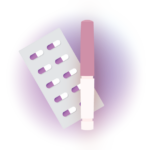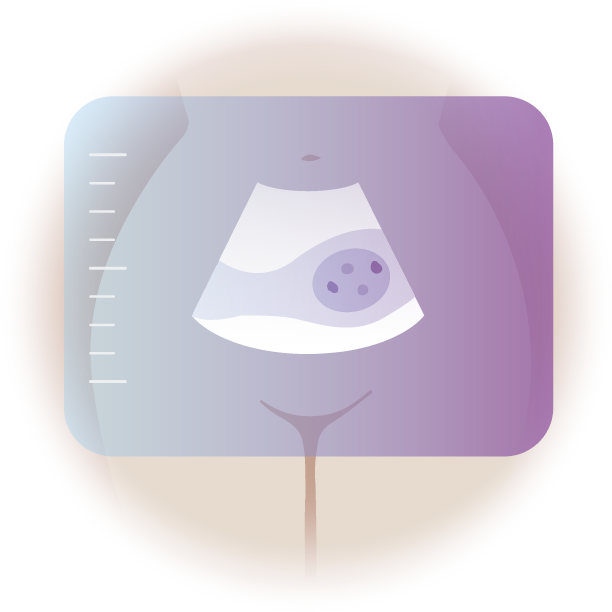
intrauterine
insemination
technology and high treatment
outcomes
fertilisation with lighter and
easier cases
What is the IUI method?
IUI, or intrauterine insemination, is one of the easiest and closest methods to natural fertilisation, which aim is to help sperm reach the uterus.
Compared to other methods of infertility treatment, IUI is a painless and less invasive procedure.
We can perform two types of IUI:
- IUI with partner sperm
- IUI-D (intrauterine insemination with donor sperm)
IUI procedure (intrauterine insemination)
Price from: 390€
- Treatment scheme
- Preparation of partner sperm or donor sperm in the laboratory.
- IUI procedure. Transfer of sperm into the uterus using a thin catheter
Extra charge: visits, ultrasound scans, medicines (if necessary), donor sperm cells, coordination fee for a patient living abroad
Process
Book an appointment for your first visit
Frequently asked questions
When is it necessary to see a fertility specialist?
It is considered that a couple should see a specialist in Assisted Reproduction when pregnancy has not been achieved after one year of unprotected sexual intercourse. However, this period is approximate and can vary depending on age. For example, it is recommended to reduce it to 6 months for individuals over 35 years old.
They are different fertility treatments with different indications: IUI uses fewer drugs and a simpler treatment regimen, involving the induction of ovulation, the preparation of sperm and the transfer of the sperm into the woman’s uterus, where natural fertilisation takes place. Although IUI is procedurally easier and quicker, the success rate of IUI is lower, typically 10-17% for women under 35 years of age, for example.
In IVF, fertilisation of stimulated punctured oocytes with sperm is carried out in the laboratory, a more complex and time-consuming procedure, but generally more successful. The success rate is around 35% for people under 35 and 26% for people over 35.
Before prescribing IUI treatment, it is important to know the woman’s ovarian reserve and levels of pregnancy-related hormones such as prolactin and TSH, as well as to make sure that the uterus and fallopian tubes are free of pathology.
The success of IUI for fertilisation depends on a number of factors, the most important of which are the age of the partners and the origin of the sperm, i.e. whether partner or donor biomaterial is used. For women up to the age of 39, the probability of conception with partner sperm is around 15%, falling to around 8% after the age of 40, while with donor sperm the probability is significantly higher, for example around 22% for women aged 40 and 10% for women aged 40 and over.







